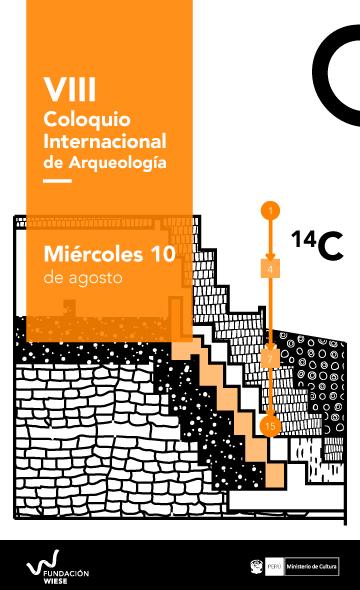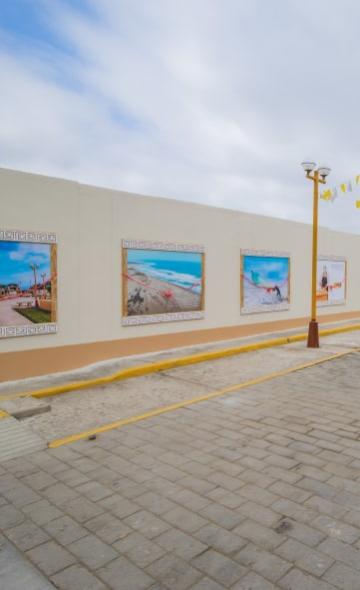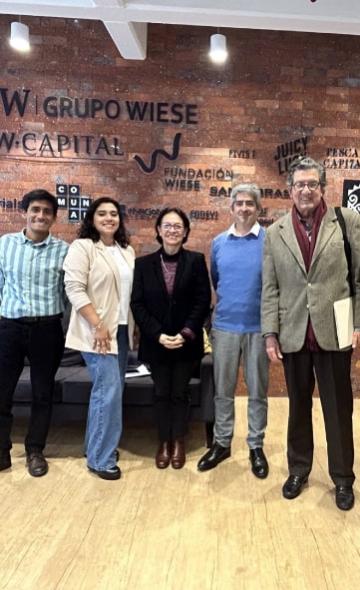- Visitors
- Researchers
- Students
- Community
- Information for the tourist
- Hours and fees
- How to get?
- Virtual tours
- Classic route
- Mystical route
- Specialized route
- Site museum
- Know the town
- Cultural Spaces
- Cao Museum
- Huaca Cao Viejo
- Huaca Prieta
- Huaca Cortada
- Ceremonial Well
- Walls
- Play at home
- Puzzle
- Trivia
- Memorize
- Crosswords
- Alphabet soup
- Crafts
- Pac-Man Moche
- Workshops and Inventory
- Micro-workshops
- Collections inventory
- News
- Community
- New perspectives on the Projects for Taxes program for archaeological projects such as El Brujo: Inauguration of the VIII International Archaeology Conference.
News
CategoriesSelect the category you want to see:
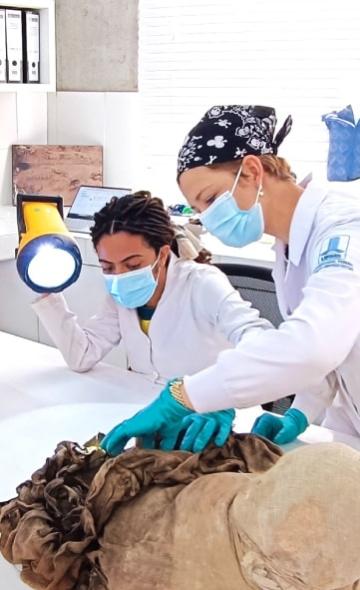
International academic cooperation between the Wiese Foundation and Universidad Federal de Mato Grosso do Sul ...
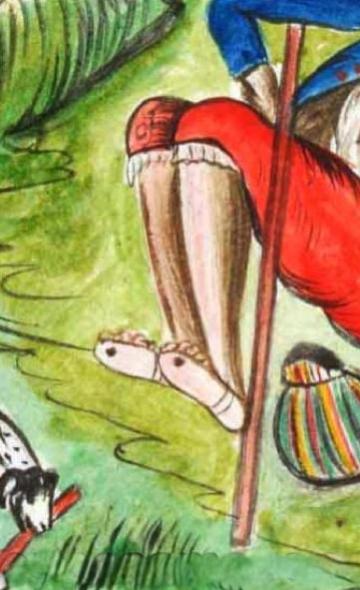
Clothing at El Brujo: footwear ...
To receive new news.
Por: Complejo Arqueológico El Brujo
On Wednesday, August 10, the eighth edition of the International Archaeology Conference was successfully inaugurated. Ingrid Claudet, general manager of the Wiese Foundation, gave the welcoming speech, highlighting the institution’s work in research and its strategic alliances for the execution of the first archaeological project under the Projects for Taxes modality at the El Brujo Archaeological Complex.
Important figures participated in the event, such as Alejandro Camino, general manager of Arauco Park; José Salazar, technical secretary of the Pact for Culture from UNESCO; Nelson Muñoz, advisor from ProInversión; and Carlos Basilio, head of the Executive Unit of Investment at the Ministry of Culture.
“In this way, the Wiese Foundation is fulfilling its promise to put a real case of Projects for Taxes at the service of society in the cultural sector, with the satisfaction of having set a precedent, a starting point whose lessons can be used later on to promote the necessary adjustments to the current standards, as well as new and better experiences”, remarked Ingrid Claudet, the general manager, at the start of the inauguration.
Archaeology financed through the Projects for Taxes mechanism at El Brujo
The first session addressed the lessons and new perspectives from the Projects for Taxes modality for projects with a cultural impact. This investment mechanism was established by Law 29230, and up until 2015 it was associated with infrastructure projects for housing, hospitals, highways, and more, involving the participation of private businesses in the management of these projects.
Since it was extended to other sectors, such as culture and tourism, the Wiese Foundation proposed to explore the application of the Projects for Taxes program to contribute to the development of more cultural spaces in Peru, promoting research, reflection, and cultural identity.
UNESCO
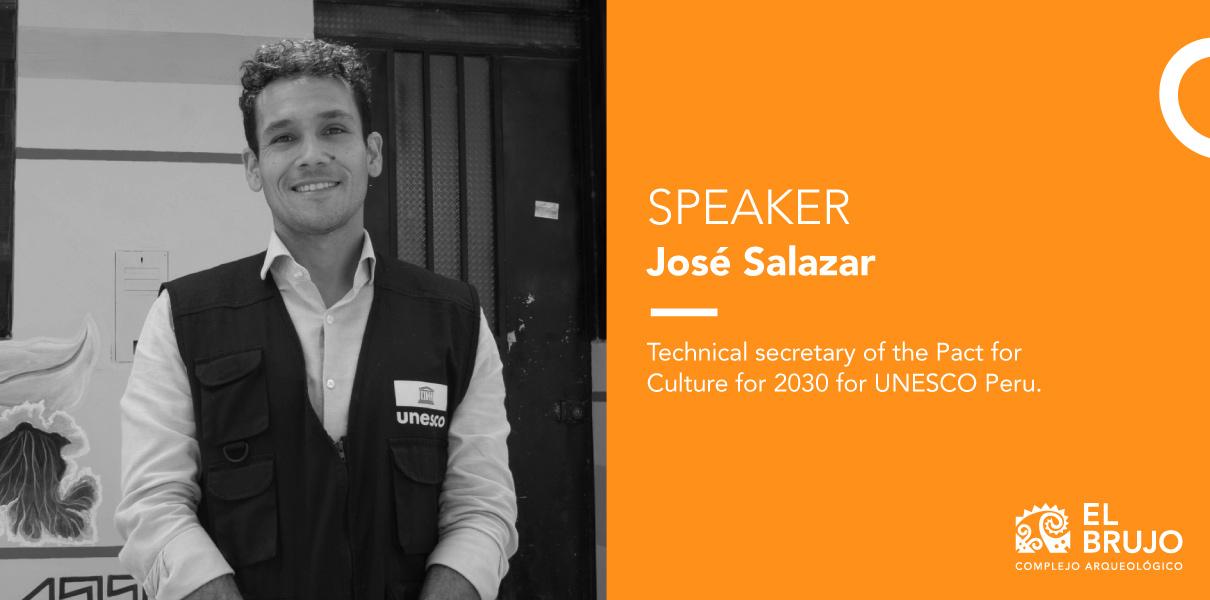
José Salazar, technical secretary of the Pact for Culture at UNESCO, highlighted the opportunities for improvement that can be achieved in the regulations, highlighting that archaeology and culture require more flexible processes.
Furthermore, he mentioned that this project is the first experience under this mechanism that focuses on archaeology, and it is innovative for all of Latin America. With this, he also encouraged the regional governments to invest in a decentralized manner in archaeology, since this brings benefits to tourism and the local economy in the middle and long term.
“The application of the Projects for Taxes mechanism to archaeology requires certain locks or certain spaces that allow for the mechanism to be flexible and that also help the financer and executive to participate in an active and committed manner to the process”, reaffirmed the speaker.
Ministry of Culture
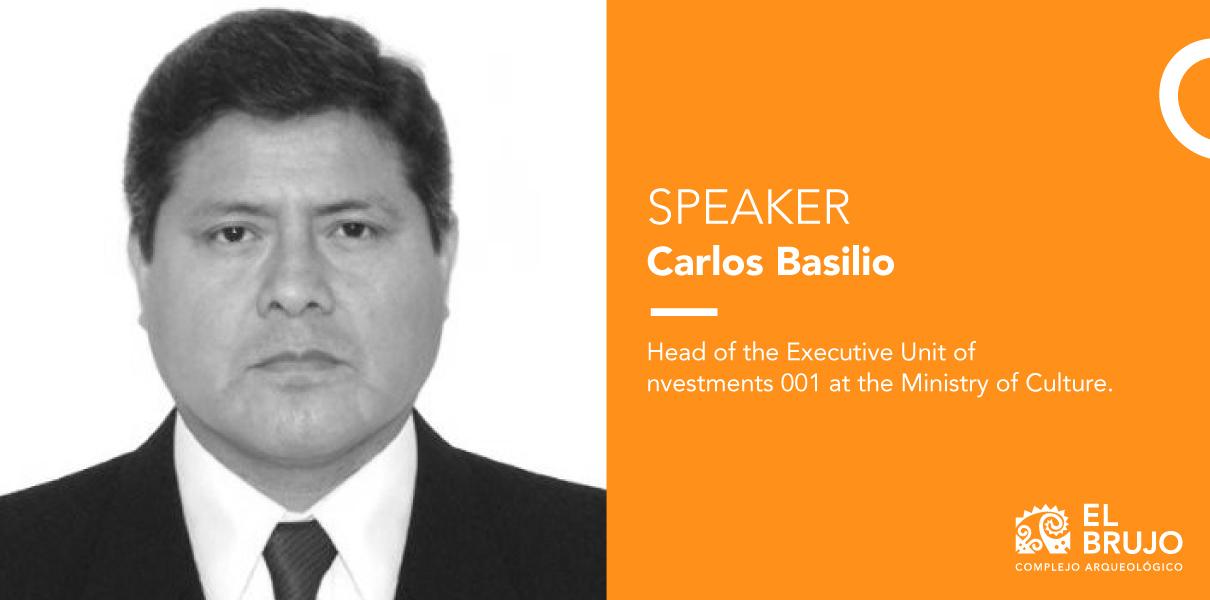
For his part, Carlos Basilio, head of the Executive Unit of Investments at the Ministry of Culture, notes that the project was successful due to the willingness of the different actors that were involved. This also helps the Ministry of Culture to improve the collection and systematization of technical files, units of measurement, and results in archaeological aspects, which are very different from the typical works of infrastructure, such as bridges or highways.
In this sense, he added that one of the main challenges that cultural and archaeological projects face is the difficulty of finding supervisory businesses, but he proposed that there are possibilities for improving the regulations so that the executive businesses themselves can be the ones who supervise the whole process.
Arauco Park
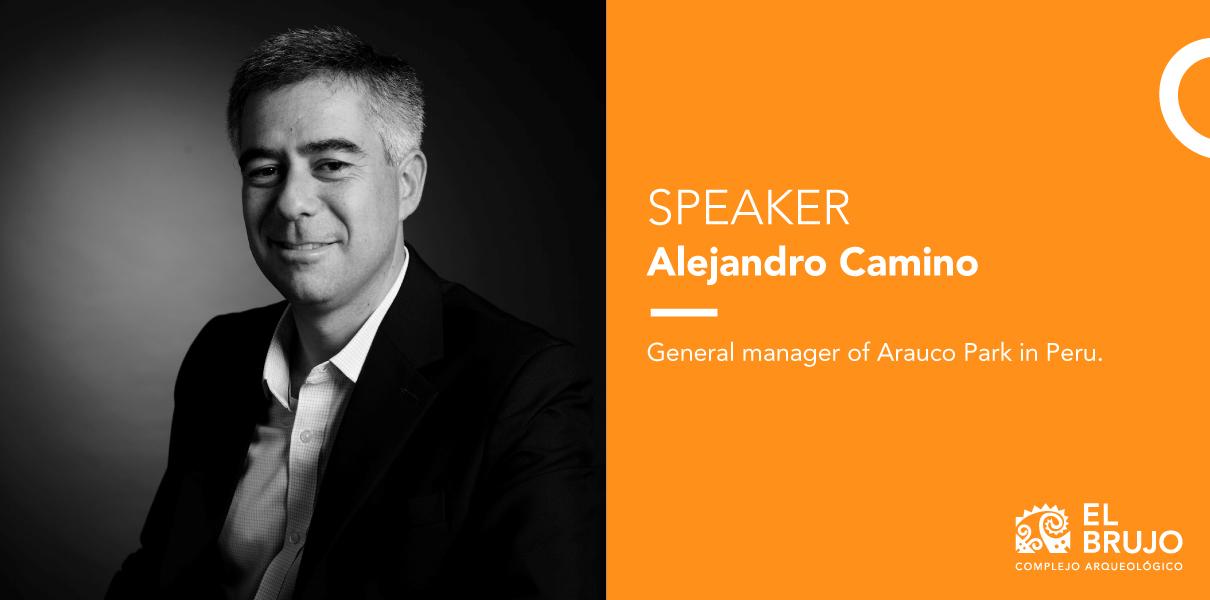
From the private sector, Alejandro Camino, general manager of Arauco Park, joins us, indicating that the main lesson is that, in spite of regulatory imperfections, a valuable archaeological project for the community was able to be implemented. This is extremely important, since it brings to the table the idea that the Projects for Taxes mechanism can be used in other sectors such as education, technology, training, and more.
He also invites other financers to join these initiatives, but highlights that it is important to keep in mind the time that lapses between the initial investment and the final tax exoneration, so it is important to correctly manage cash flows. Camino concludes: “From the point of view of the investor, there is an opportunity to promote the participation of businesses that are in the area, that will also get a natural benefit from executing these projects that attract more tourism and more activity.”
ProInversión
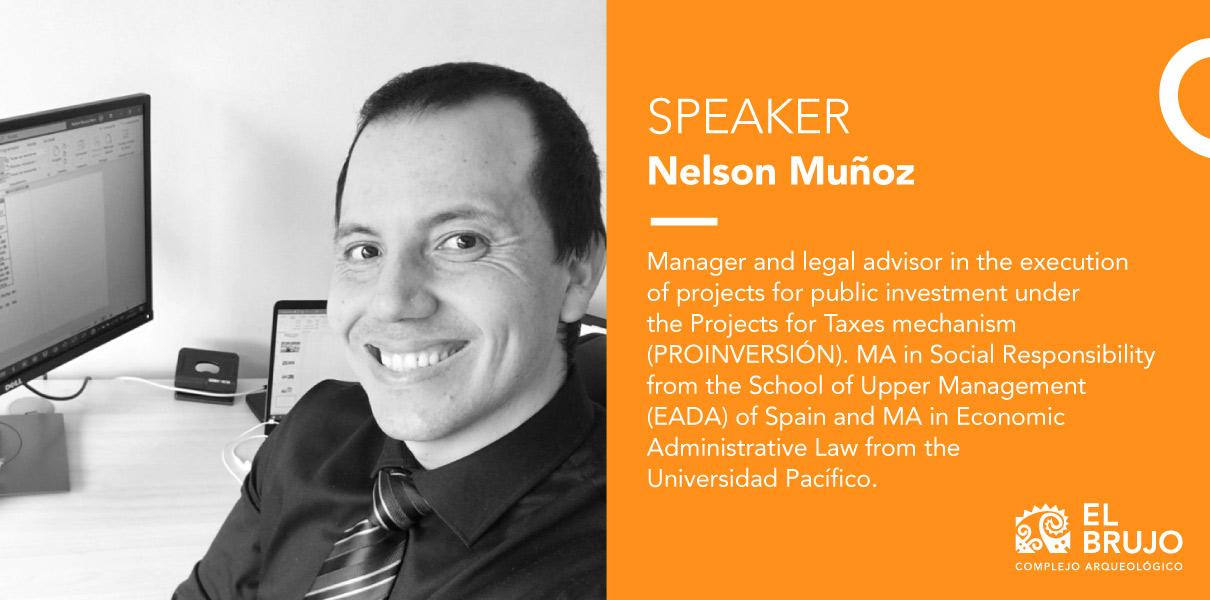
Complementing the idea of Alejandro Camino, Nelson Muñoz, advisor for ProInversión, added that the development of a project for Projects for Taxes is a collaborative strategic task. He also notes that since the Law was created in 2009, it has been modified over the years with the development of diverse projects, so with these efforts it will continue evolving.
“It is important to have regulations that can back up the decisions we make as public servants, but I think it is much more important to have willing and able people to make these decisions”, closed Nelson Muñoz.
Second session: Preliminary results of excavations at Huaca Cao Viejo
After many years of investigation, conservation, and diffusion, the team in charge of these activities shared the results obtained from excavations, and all the related aspects, at Huaca Cao Viejo.
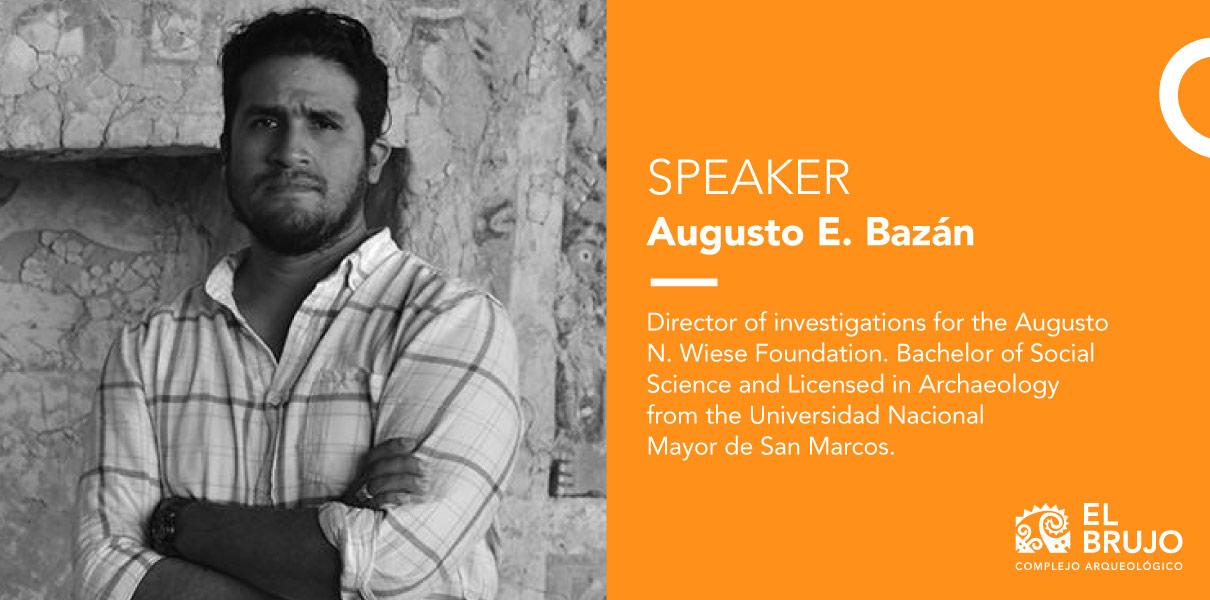
The director of investigations at the El Brujo Archaeological Complex, Augusto Bazán, highlighted georeferencing projects that were carried out at this archaeological site to better understand the archaeological spaces and the time invested in them.
In this same line, he highlights the relevance of using topography, photogrammetry, excavations, and the field record, but above all, written information processed by the archaeologists themselves, constructing occupational sequences and syntheses from the information gathered.
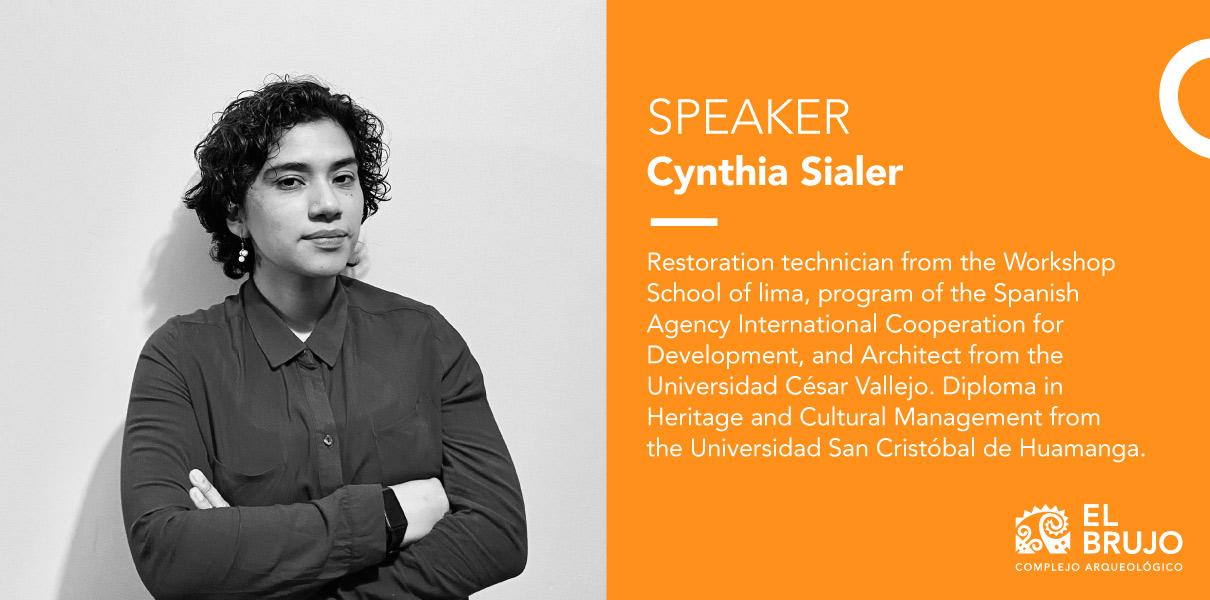
In the case of Cynthia Sialer, head of immovable conservation at the Wiese Foundation, she concluded that conservation in tandem with research is an unavoidable challenge, since it is a constant activity and demands great attention under the regulations of the Projects for Taxes mechanism, and is part of the continuous work of the Wiese Foundation at El Brujo.
Regarding works of promotion and diffusion, Milagros Arquíñigo, head of communications for the Wiese Foundation, highlights that for them, the El Brujo Archaeological Program represents one of the principal strategies to achieve the promotion of Peruvian identity, which is one of their central values.
Through the creation of digital channels at El Brujo, they established these platforms as the principal means of achieving the diffusion and positioning of the brand, mass promotion of knowledge, and local tourism.
“When we stopped work due to the pandemic, we had the opportunity to demonstrate that the contents produced through the scientific research program at an archaeological site such as El Brujo could be shared through its digital channels to share the knowledge with all of society”, highlighted the head of communications, Milagros Arquíñigo.
Widespread public participation
During the first session, not only did the speakers present their perspectives and results, but the public was also very active, participating in various surveys and asking questions about the topics presented. The users concluded that two of the main challenges in the application of Projects for Taxes in the cultural sector are the lack of knowledge about the mechanism among the actors of the cultural sector and the need to adjust the regulations for archaeological projects.
Finally, the majority of the people who were present and participated in the round of questions and answers during the event stressed that this mechanism is an opportunity to develop future archaeological projects on a large scale.
Closing and invitation to join in the following sessions
Ingrid Claudet, general manager of the Wiese Foundation, who also was involved in the moderation and presentation of this first session, thanked all the attendees for their participation and cordially invited them to follow the following days’ presentations on our Facebook channel.
Community , outstanding news


